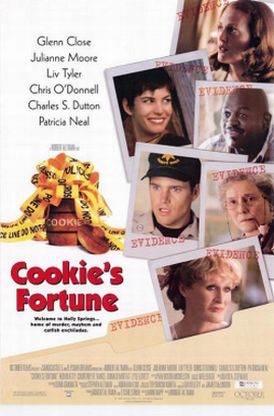Spanglish
As someone who has never much liked Adam Sandler — neither in his “Saturday Night Live” days, nor in his early and infantile film roles as Billy Madison or Happy Gilmore, nor in his later exercises in self-indulgence such as Mr Deedes or Anger Management — I am reluctant to admit it, but he seems to be a more serious person than I had thought. In fact, he now seems to me to be crafting a body of work which is designed as an answer to one of the central questions of our existence and one of particular interest to me: What does it mean to be a good man? Robert Bolt commented on Thomas More, his subject in A Man for All Seasons, that he was a “good” man not just in the moral sense but good in the way we mean when we say a knife is a “good” knife. That is, he was good at being what a man is for. I’ve never been quite sure what he meant by that, but I was reminded of it by Sandler’s new movie, Spanglish. I didn’t much like it, and I still don’t much like Sandler, but his is a comic exploration of Bolt’s territory
The trouble is that, as in so many others of his movies, Sandler’s ego sucks up all the moral and artistic oxygen. Though it was directed by James L. Brooks, the comic intelligence behind much of “The Simpsons” as well as such amusing movies as As Good As it Gets and Broadcast News, one senses the massive presence at the movie’s center of Sandler, whose gravitational field (to change the figure) is so powerful that nothing can escape it. Thus, although the movie purports to be a portrait of the marriage between his character, super-chef John Clasky, and Deborah (Téa Leoni), we never have a sense of Deborah as a person. Her function is life is to be an annoyance to her husband — and, to a lesser extent, her children. It is also supposed to be a movie about an affair, or the possibility of an affair, between John and the family’s Mexican nanny, Flor (Paz Vega). But even though Flor has a life of her own, especially in relation to her daughter, Cristina (Shelbie Bruce), it is in the film’s account of it without any real sense of independent existence. Flor is there as a foil to Deborah, good where she is bad, perfect for John where Deborah is hopelessly wrong.
In other words, it’s all about John, and for all the seriousness of the film’s intentions with respect to this central figure, I don’t think there’s really enough of him to justify such centrality. Also among the film’s faults is a confusing sense of time and chronology. Flor seems to go from complete incomprehension of English to fluency in a couple of weeks while the family is staying at a beach house in Malibu. But then the title is also misleading. There is a mention of the subject of the interaction of Hispanic and Anglo cultures in California, but then the subject is quietly dropped — apart from a mention of the fact that on first meeting John Flor thinks, as “someone with a first hand knowledge of Latin machismo,” that “he seemed to have the emotions of a Mexican woman.” Nor does it matter here that, by employing an illegal alien, John misses his chance to become Secretary of Homeland Security. All the wider world is ultimately reduced to an appendage of John’s moral paradigm.
Or, more accurately, Mr Sandler’s. For here his character is the same it has been in every movie since at least The Wedding Singer. You know him, I’m sure. He’s a shy, sensitive type who loves women and children and is generally loved by them, though he is often wronged by a particular woman with selfish or ambitious tendencies. He himself is a modest and unassuming man who likes to laugh and make jokes and who doesn’t care about money or success — though he is also one to whom money and success seem to come effortlessly. In short, what we’re dealing with here is the classic American “nice guy” — except that he doesn’t finish last. I should say that I don’t find this account of the flower of American manhood a particularly compelling one, and in several ways it is positively iniquitous. I have already mentioned the tendency to display of the tenderer emotions, but a similar sensitivity to the wants and wishes of children leads him to take the fashionable but pernicious view that they should have nothing much to do but enjoy themselves. Of his daughter’s education in a competitive private school he says, for example: “In a decent world, her school should let her know how great she is, right?” Uh, wrong.
But what makes the Sandler version of Mr Nice Guy into the paradigmatic figure I take him to be is that, here as elsewhere, he must react in some way to a challenge to his manhood. Often in the past he has had to react with violence, but in Spanglish the challenge is one of self-denial, which argues that this new and updated Man of Honor for a post-modern, post-honor culture, may be maturing at last. Unfortunately for the movie, it is hard to make maturity cinematically sexy. This is a comedy that just isn’t very funny and that has one character, Miss Leoni’s Deborah, who is way too big for it. We see only a tantalizing glimpse, for example, of her complex relationship with her mother (Cloris Leachman) when she says to her, “You’ve done it again: made me hate myself.”
Mom replies with the best line of the film: “Honey, lately your low self-esteem is just good common sense.” Self-esteem may be OK for kids, it seems, but not for misbehaving wives. Yet in a way Mr Brooks is also making fun of himself here for supplying us with nothing more than psychobabble about self-esteem — or, on another occasion, anger against her mother — to account for the extraordinary character Deborah is. She is just so much more interesting to most people than the perfectly good John and the perfectly good Flor that we can’t help but feel rather cheated by how little we are allowed to see of her. At some level Brooks must see this too; otherwise he wouldn’t have had to work so hard to make the film not about her but about John as domestic hero. That’s pretty much all the film has going for it, and it will be interesting to me to see how heroic he seems to today’s audiences, now that he is left without any of his usual displays of pent-up aggression.
Discover more from James Bowman
Subscribe to get the latest posts to your email.








